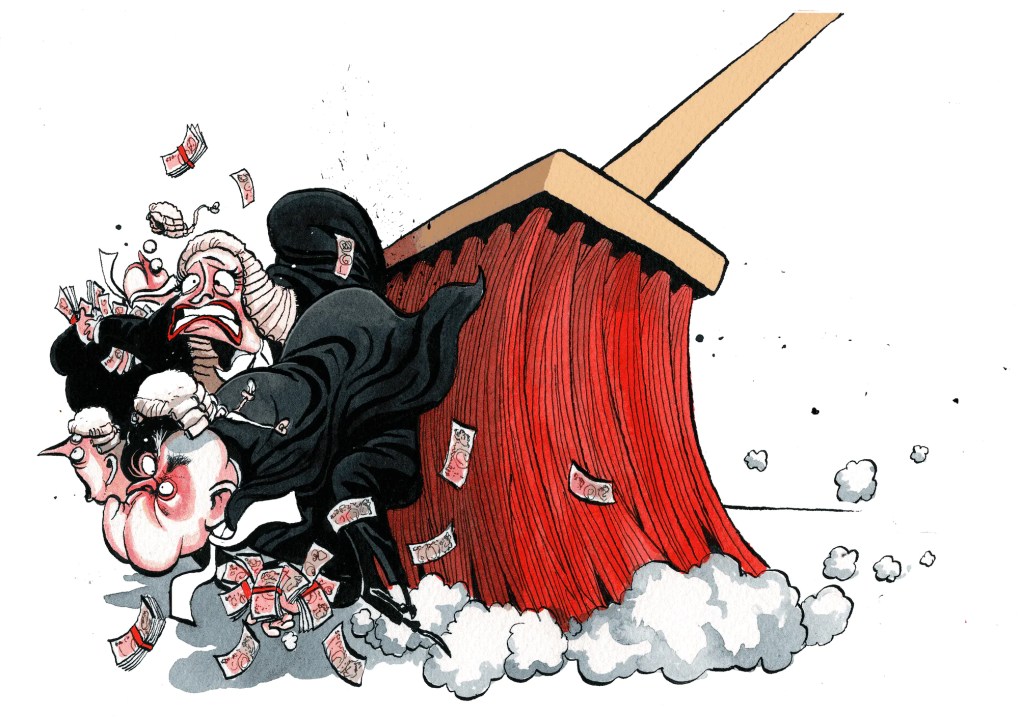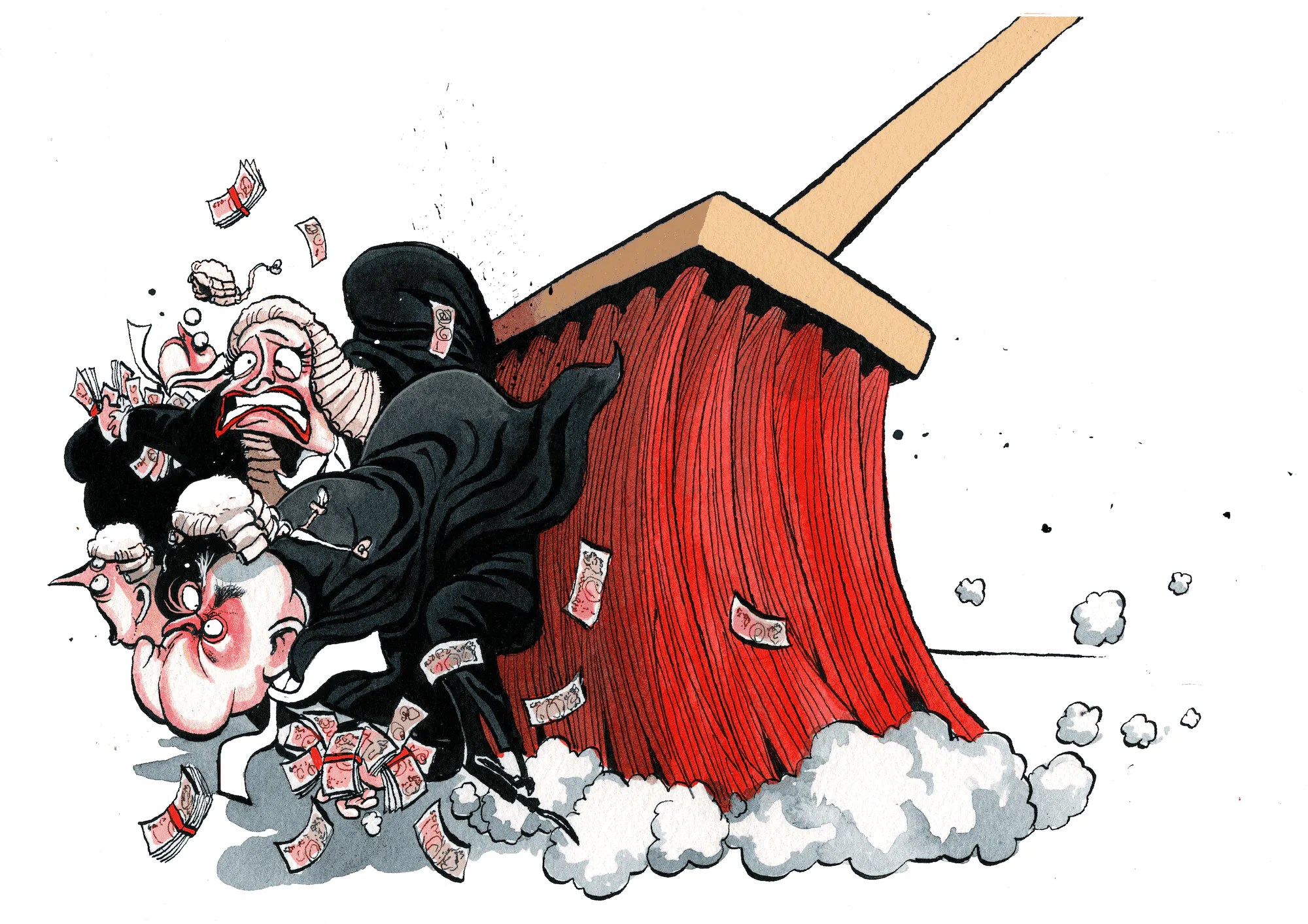Liz Truss’s government has taken a deserved pasting in the polls for its slapdash economics, but all is not lost for the Tories: the party is doing a good job of holding the line on some of its more enlightened social policies – not least on ensuring freedom of speech.
Justice Secretary Brandon Lewis’s appearance at a fringe event yesterday was understandably overshadowed by other events. But his comments are too important to go unnoticed. Lewis told a Policy Exchange meeting he intended to fashion free speech laws to make clear there was a right to say what one thought, even if it offended others. The Justice Secretary also said that even if he had no plans to withdraw from the European Court of Human Rights (ECHR), he remained committed to greatly limiting the influence of the court in its interpretation in the UK. Both announcements were pretty obviously cleared from on high. Both are significant.
On free speech, we do not have many details. But there are three points in particular that one suspects Lewis had in mind (and if he does not, he certainly should have). One is the Online Safety Bill and its project for controls over material that is legal but harmful to adults: a category to be left to secondary legislation under the Bill, and which potentially could well have included offensive speech. Liz Truss hinted at a rethink on this hot potato in the Tory leadership election; it could well be that she has now sagely agreed to drop it.
These proposals will undoubtedly cause a great deal of noise
The second is the looming call from the Law Commission last December to extend criminal sanctions on so-called hate speech to cover more interest groups, to remove the need for any intent to cause hatred, and suppress the protection for speech within the home. Earlier this year, the indications were that Priti Patel had her doubts about this proposal. Lewis’s latest announcement may indicate that it too is headed for the long grass.
The third is the growing menace from human rights law to people’s right to speak their mind. Here, Lewis’s announcement is even more important. When Liz Truss unceremoniously sidelined Dominic Raab’s Bill of Rights last month, there was some confusion. It was an open secret that the Bill had been Raab’s pet project, viewed with some scepticism elsewhere. Did the Prime Minister drop it because she had bigger fish to fry? Or was it, as some said, an acceptance that the Bill was good in principle, but needed improving on the technicalities?
The latter of these now seems to be correct. Lewis’s reference to the need to reduce the influence of the Strasbourg court, to streamline deportation when human rights arguments were raised, and to tip the balance between offenders and victims, all indicate a revival in all but name of the Raab proposal. His mention of free speech also confirms this. The Strasbourg court has shown over the last 20 years a dangerous tendency to downplay free speech. It has even required that speech be restricted as a matter of human rights law: witness its elevation of the right to privacy over the right of newspapers to report what their readers want to know, and its increasing insistence on the extension, rather than the restriction, of hate speech laws. The Bill of Rights contained provisions aiming at re-establishing the primacy of free speech in such cases. It is a fair inference that any new government bill on the subject will do the same.
These proposals will undoubtedly cause a great deal of noise. They will attract the ire of left-leaning MPs, who have broadly welcomed the Online Safety Bill and even called for it to go further. When it comes to human rights, a similar eruption is likely. For this group of MPs, the European Convention on Human Rights has been viewed as something approaching holy writ. The status of the European Court of Human Rights has been seen as its generous and expansive interpreter, beyond such sordid matters as national politics and the ill-informed desires of electors in the thrall of petty populists.
But controversy of this kind is no bad thing for the government, provided that it makes its case clear. Many of the Labour faithful may be happy with what they see as judicious restrictions on free speech in the name of social harmony, and entirely content with a spirited defence of the status quo on human rights law. But if its potential voters are not, it will find itself in a bind: and this may well be the case. Defending to Red Wall voters further restrictions on what people are allowed to say online or in print, or to see on Facebook or Instagram, is likely to be a hard sell.
The same goes for human rights. A survey commissioned some weeks ago and soon to be published by Policy Exchange is sobering reading for anyone who believes in some deep British reverence for the human rights machinery in Strasbourg. Asked if Strasbourg judges should be able to override decisions made here, considerably more disagreed than agreed; an even greater majority said Strasbourg should not be able to block the deportation of foreign criminals. Even on the hot-button question of possibly leaving the ECHR altogether, the numbers for and against were roughly at parity; within the Red Wall, substantially more were in favour.
In at least this area then the government is on to something. It is now up to Liz Truss to make this clear to the UK electorate and, if it acts quickly, to wrongfoot Labour in a spectacular way.







Comments